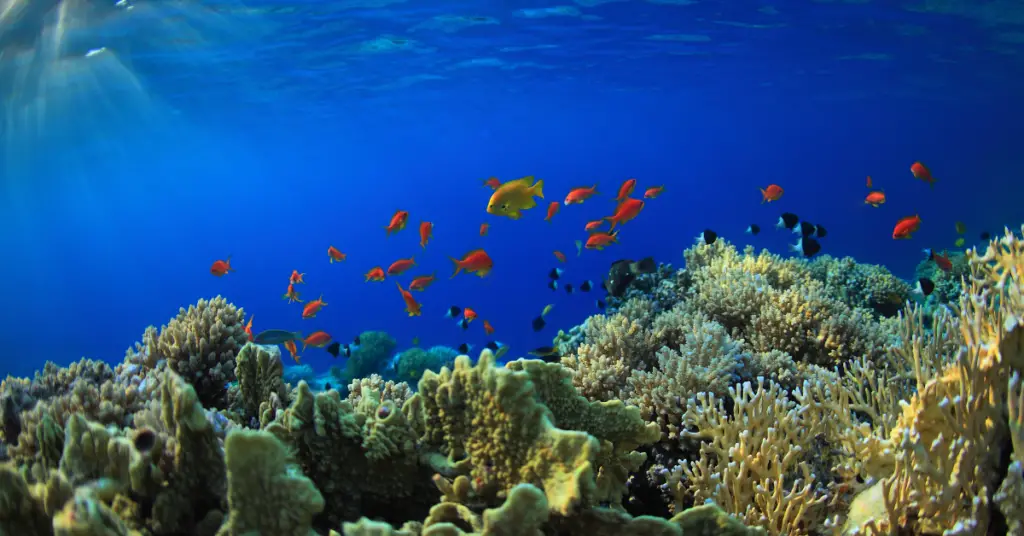Coral reefs are large underwater structures found in tropical ocean waters around the world. They are among the most diverse and valuable ecosystems on the planet. Coral reefs are home to more species than any other marine ecosystem. They are estimated to cover more than two hundred eighty-four thousand square kilometers.
Australia’s Great Barrier Reef is the largest coral reef and it stretches for over 2,400 kilometers and supports 100 species of jellyfish 1625 types of fish, more than 30 species of whales and dolphins, 133 varieties of sharks and rays.
Coral reefs are not plants they are made up of tiny animals called polyps which secrete callicles to form a hard skeleton. These invertebrates usually live in colonies of many identical individuals. Many such colonies joined together and become reefs.
Coral reefs provide habitat and shelter for millions of species and they protect coastlines from the destructive effects of huge waves and tropical storms, they also assist in nitrogen and carbon fixing and recycling of nutrients.
Corals get their colors from algae called zooxanthellae that live in their tissues in an endosymbiotic relationship. These algae provide essential nutrition for the coral to survive. When corals become stressed due to factors like pollution and increase in water temperature they evict their algae this is called coral bleaching.
Due to coral bleaching, they lose their color, begin to starve and they become vulnerable to coral diseases. This affects the millions of marine species and coastal communities if the water temperature stays high the corals won’t let the algae back and then they will die eventually.
We have lost half of the coral reef over the last 30 years, if we don’t reduce carbon pollution and limit global temperature, children born today might be the last generation to see coral reefs.

Erzsebet Frey (Eli Frey) is an ecologist and online entrepreneur with a Master of Science in Ecology from the University of Belgrade. Originally from Serbia, she has lived in Sri Lanka since 2017. Eli has worked internationally in countries like Oman, Brazil, Germany, and Sri Lanka. In 2018, she expanded into SEO and blogging, completing courses from UC Davis and Edinburgh. Eli has founded multiple websites focused on biology, ecology, environmental science, sustainable and simple living, and outdoor activities. She enjoys creating nature and simple living videos on YouTube and participates in speleology, diving, and hiking.

